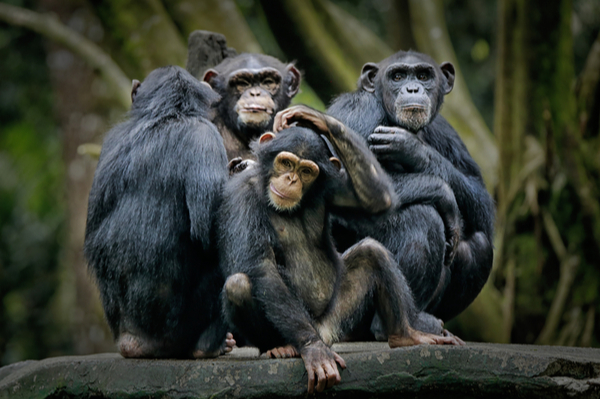Can We Become Better Managers by Watching Apes?
Thursday 06 September 2018
Patrick van Veen was a keen biologist who studied primate behaviour and loved the topic. But, just like many of his peers, he struggled to find a job in his preferred sector after graduation. So, he went and joined the insurance industry – and it wasn’t long until he realised that working among people was not that different from working with animals.
Looking around in his office he recognised behaviours he’d seen before as a researcher in the zoo, and started to write down the actions of his colleagues. A couple of years later, he used this knowledge to start a behavioural consultancy called Apemanagement®.
Founded in 2002, the company provides workshops, lectures and management training sessions to help organisations respond to challenges in the workplace. With offices in the Netherlands and the UK, Apemanagement®’s sessions take place in zoos, so participants can observe primates up close. From understanding colleagues’ actions to the importance of healthy team dynamics, the team believes apes can teach us a lot about management. Companies such as Shell, HSBC and the NHS are among those who have enrolled on the workshops with some interesting purposes:
Apes Can Make Managers to Be Better Communicators
Humans and primates share the majority of their genes – up to 99.8% in case of chimpanzees and bonobos – our closest relatives. As behaviour is partly expressed through genes, it’s no surprise that human behaviour resembles ape behaviour so much.
Just like monkeys, people are highly social and up to 80% of human communication is nonverbal. This allows many possibilities for miscommunication. As primates communicate largely non-verbally, they can make us more aware of the nonverbal social behaviour of ourselves and our colleagues.
Read more: the importance of workplace communication
Apes Can Teach Us About Leadership Style
Apes can teach us lots about healthy team dynamics if we are paying attention.
First, ask yourself, what kind of boss are you? Are you a gentle but strong leader who protects their team, but who is on their own when it comes down to decision making and responsibility? Then you’re a gorilla.
Or are you a chimpanzee who is anything but gentle and leads the group as part of a small, well-bonded team?
Or are you a baboon who prioritises on co-operation and expects that all team members take responsibility?
These strategies all have advantages, but they can be used in the wrong time and place.
Read more: understanding leadership styles
Apes Can Help You to Build Effective Teams
Observing your team members’ social behaviour can also help you pinpoint the primal instinct that may hinder the effectiveness of your team.
We can learn lots about developing successful teams from studying chimpanzees. These primates spend a huge chunk of their day grooming each other to create lasting social bonds.
In the workplace, managers should ask themselves how much time an average team member spends chatting to each other informally. Do you think one asks the other how their son’s football game went? Do they have the chance to offer each other a cup of tea during the working day?
The importance of small favours and lighthearted conversation shouldn’t be underestimated: these are the human equivalent of interactions that create a balanced team.
When chimpanzees are stressed – whether this is due to food shortages, or the arrival of a new group member – the frequency of grooming in their group increases. Allowing more bonding times like this in the office is important. Grooming brings back the status quo to the group, whether chimpanzee or human.
Read more: how to build an effective team
For more information about Apemanagement® visit apemanagement.nl/en-gb
Image: Shutterstock
On target: why archer and compliance pro Mark opted for a Senior Leader Apprenticeship
Quality and assurance director Mark Braham joined the army aged 16 and later forged a career in compliance
How I became an apprenticeship ambassador
Kate Walker shares her inspiring path from rejection to success
Management Publication of the Year: people and planet in the spotlight
The Sustainable Futures category highlights works that further our understanding of the green economy
How well do you really understand your organisation’s culture?
Adrian Walcott CCMI left a long career in brand marketing to help companies connect with their culture
Article
Our extensive range of articles are designed to keep you in the loop with all the latest management and leadership best practice, research and news.
Members See More
CMI Members have access to thousands of online learning and CPD resources. Learn more about our membership benefits
Join The Community
CMI offers a variety of flexible membership solutions, tailored to your needs. Find out more and get involved in the CMI community today.
